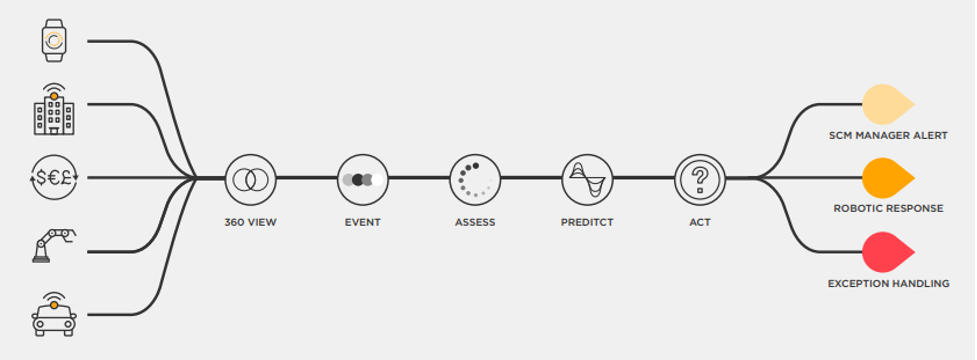
Image: iStock.com/Jian Fan
How AI Can Help to Reduce Supply Chain Fragility
Global enterprises are struggling with supply chain fragility, in the form of unpredictable shortages, shipping delays and logistics breakdowns. But what’s plaguing many businesses today is also providing an opportunity to achieve competitive advantage. Through the use of advanced analytics driven by artificial intelligence, organizations can become more resilient.
There’s been much talk recently about AI tools such as Chat GPT and Dall-E, which generate text or images in response to prompts. While there are potentially valuable uses of those systems, there are also risks to consider that undercut their value in the near term. At the same time, there are some low-risk use cases— “pragmatic AI” — that can help companies adapt to real-world supply chain volatility right now. Such applications can assist in real-time operational analytics and simulations, improving route optimization, materials quality management and the quality of trading partner data.
Every organization has its own unique supply chain challenges, but here are three AI-infused best practices that can help every organization find its best path forward.
Build a Supply Chain Center of Excellence (COE) with a workstream focused on pragmatic AI. Executive leadership is acutely aware of the importance of supply chain agility, and a COE with executive sponsorship provides a way for technical and business leaders to collaboratively address supply chain risks.
When building a COE, or expanding the scope of a current one, make sure that the workstream is focused on practical applications of AI. Examples include automated route optimization, anomaly detection for parts manufacturing (whether traditional or additive), and prescriptive demand planning.
Add AI processes to trading partner data management for faster data-quality improvements. It’s not uncommon for complex supply chain process flows and subcomponent production to be delegated to suppliers. This, however, demands a high degree of collaboration, which is dependent on near-real-time data exchange. Such exchanges are only possible when data quality is agreed upon and managed across the trading partner network. Automating the use of your trading partners’ product test results, shipping data, bill of materials and other forms of data and metadata that are consumable by your enterprise. Practical applications of AI can help speed this process, by automating outlier detection at scale for specific data challenges.
Determine your supply chain maturity baseline, then use practical applications of AI to improve it. A Supply Chain COE can identify a baseline for three facets of supply chain maturity: dynamic learning, data curation and automation; real-time operational analytics and simulation; and scalability and diffusion of innovation.
Improving supply chain agility using AI requires a phased approach:
- Look for AI data quality processes to add near-term value to existing enterprise resource planning (ERP) and supply chain management (SCM) SCM infrastructure and applications.
- Use AI for predictive and prescriptive analytics to reduce operational risk from shortages and route planning.
- Develop AI-infused dashboards where your organization can share real-time visibility with trading partners.

Figure 1. Bring together data from a myriad of disparate sources — some historic, some real-time — to fuel an AI-enabled, adaptive supply chain.
Brembo SpA (the Brembo Group), a world leader and innovator of automotive disc brake technology, operates in 15 countries on three continents, with 29 production sites and a supply chain encompassing more than 6,700 businesses. It adapted analytics workflows from other areas of the business in ways that heightened supply chain intelligence. By focusing on improving analytics for big data, the company evolved its analytics infrastructure to improve performance and user-friendliness. This also laid the groundwork for AI-infused insights that support supply chain agility.
The turbulence affecting supply chains is unlikely to disappear anytime soon, so use this moment as an opportunity to revamp for agility. While the media might focus on the hype surrounding generative AI, there’s real value to be had now from the use of pragmatic AI, to transform supply chain fragility into competitive advantage.
Lori Witzel is director of the Thought Leadership Team at Spotfire, a business unit of Cloud Software Group.
